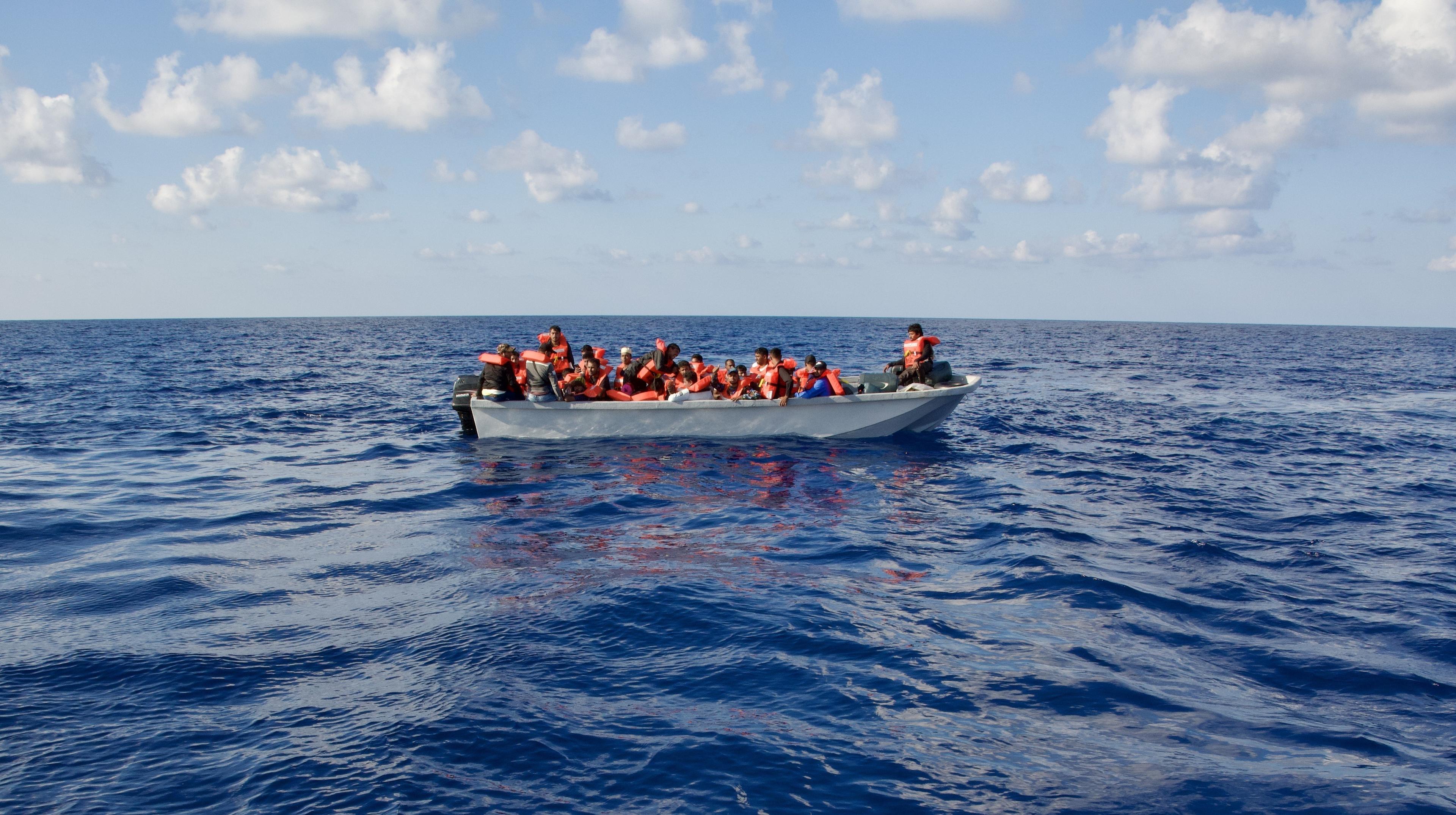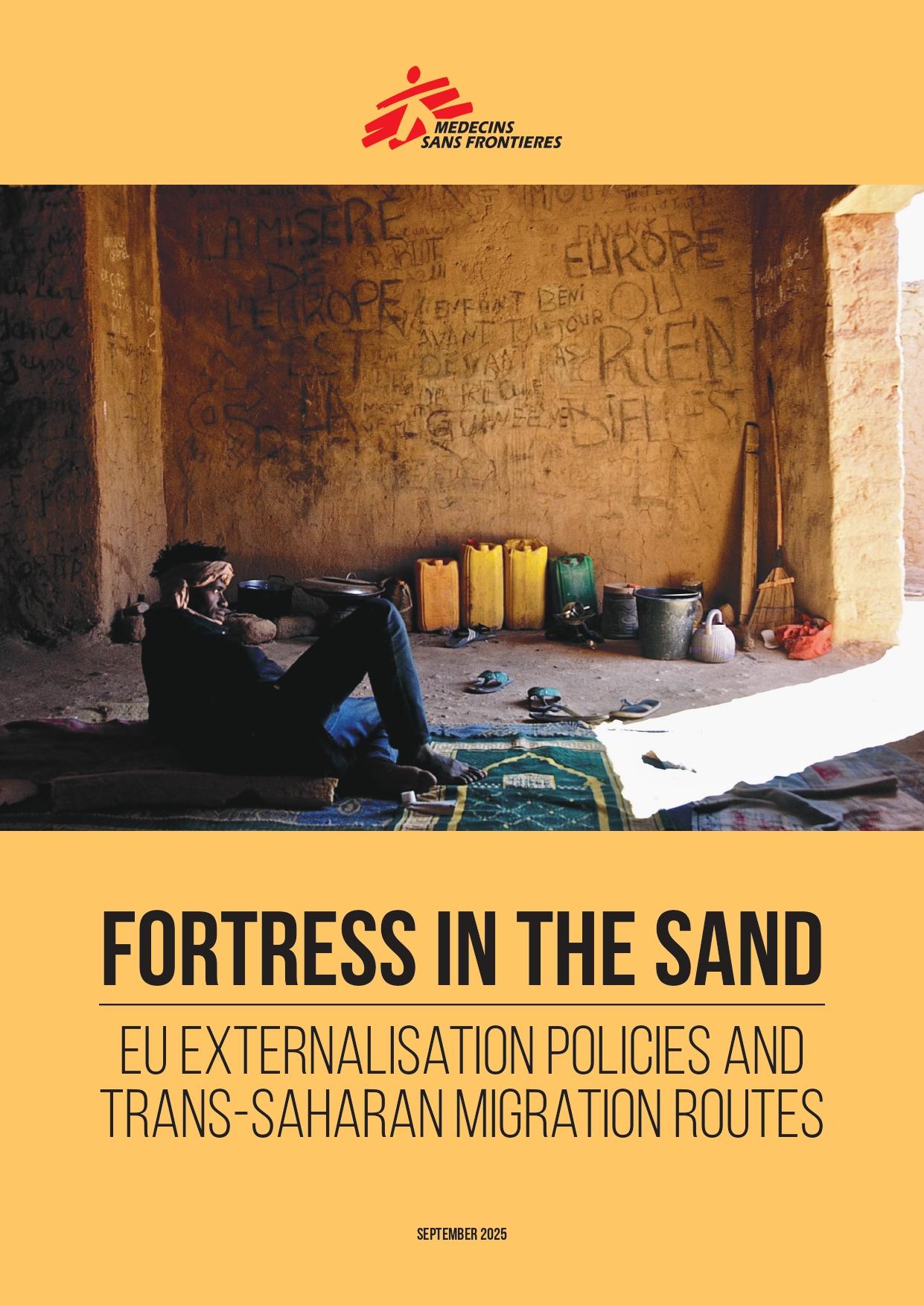
New MSF report highlights the harmful effects of ten years of outsourcing European borders
In 1 click, help us spread this information :
A new report by Médecins Sans Frontières (MSF) shows that agreements made by the European Union with third countries to limit the arrival of refugees and migrants have made routes longer and more dangerous, leading to the deaths of thousands of people.
In September 2015, the photo of a three-year-old boy, Alan Kurdi, who drowned and was found dead on a beach in Turkey, stirred emotions and raised the question of how to protect people fleeing the civil war in Syria. Very quickly, however, in March 2016, the European Union concluded an agreement with Turkey with the aim of limiting arrivals, in exchange for €6 billion.
While this ‘border externalisation’ agreement is not the first of its kind (following the ‘friendship’ agreement between Italy and Libya in 2008 and the Khartoum Process for the Horn of Africa in 2014), it nevertheless marks the beginning of a massive acceleration in similar partnerships, which continues to this day.
The report "Fortress in the Sand: Report on EU Externalisation Policies and Trans-Saharan Migration Routes" looks back at ten years of EU border externalisation policy and how it has led to the deaths of thousands of people on increasingly long and dangerous migration routes and contributed to the destabilisation of some partner countries.
Read the executive summary (in French)

"The European Union considers these partnerships, established with both countries of departure and transit countries, to be a success in terms of the number of people arriving on its territory via a given route, says Jérôme Tubiana, MSF operational advisor on migration issues.
But what its representatives are accepting are the tragic human consequences that result from this – thousands of deaths and devastation to the physical and mental health of people forced to constantly take new, more dangerous routes to avoid blockages,"
— Jérôme Tubiana, MSF operational advisor.
Following the signing of an agreement with Libya in 2017, and against a backdrop of increasing obstacles to rescue operations in the central Mediterranean, arrivals from that country fell from 165,000 in 2016 to 7,000 in 2019. However, they rose again the following year and have stabilised since 2021 at around 40,000 to 50,000 people per year, despite increased European material and financial support for the Libyan coastguard. More importantly, 157,000 migrants arrived in Italy in 2023, from all countries of departure combined. This figure is close to the 2016 peak, which can be explained by the shift in departures from Libya to Tunisia. An increasing number of people are now also attempting the perilous Atlantic crossing to the Canary Islands.
As a result of these blockages and longer routes, thousands of people lose their lives every year.
Between 2015 and September 2025, at least 27,000 people lost their lives drowning in the Mediterranean, including more than 20,000 in the central Mediterranean, according to the International Organisation for Migration. Similarly, in Niger, migrant deaths increased fivefold between 2016 and 2017, when a law inspired by the European Union and criminalising the transport of migrants was enforced.
“Partnerships with states outside the EU have multiplied over the last ten years as people on the move have taken new routes, without regard for human rights, and sometimes even when partner governments are guilty of or complicit in violence against migrant people," says Tubiana.
The changes in routes have only provided further justification for the EU to relentlessly pursue its externalisation policies with new partner countries, in a deadly vicious circle, thereby completing its attempt of blockade."
In fact, the partnership established in 2017 with a Libyan government that is internationally recognised but controls only part of the country's territory has led to an increase in the number of interceptions of people at sea (one in three today).
It has also contributed to making the detention of migrants a lucrative exploitative economy for many militias.
To escape this insecurity, exiles in Libya, lacking sufficient safe and legal routes out of the country, have not only continued to attempt the sea crossing from Libya but also, increasingly, from Tunisia, until an agreement was reached with that country in 2023, even though it was plagued by mass violence against sub-Saharan migrants.
European policies also have an impact on the countries with which they are signed. In Niger, migration policies implemented in agreement with the EU were highly unpopular and weakened the signatory government of Mohammed Bazoum before he was replaced in July 2023. The new authorities quickly repealed the partnership.
In several countries of departure, along migration routes or upon arrival in Europe, MSF witnesses the consequences of externalising border policies on the health and lives of migrants.
There is an urgent need to suspend or abandon existing agreements on migration management and border control in third countries, as they do not guarantee sufficient precautionary measures, respect for human rights and protection for all migrants, regardless of their legal status.
Strengthened monitoring and evaluation mechanisms that are regular, financially independent, transparent and binding must be put in place to ensure respect for human rights.